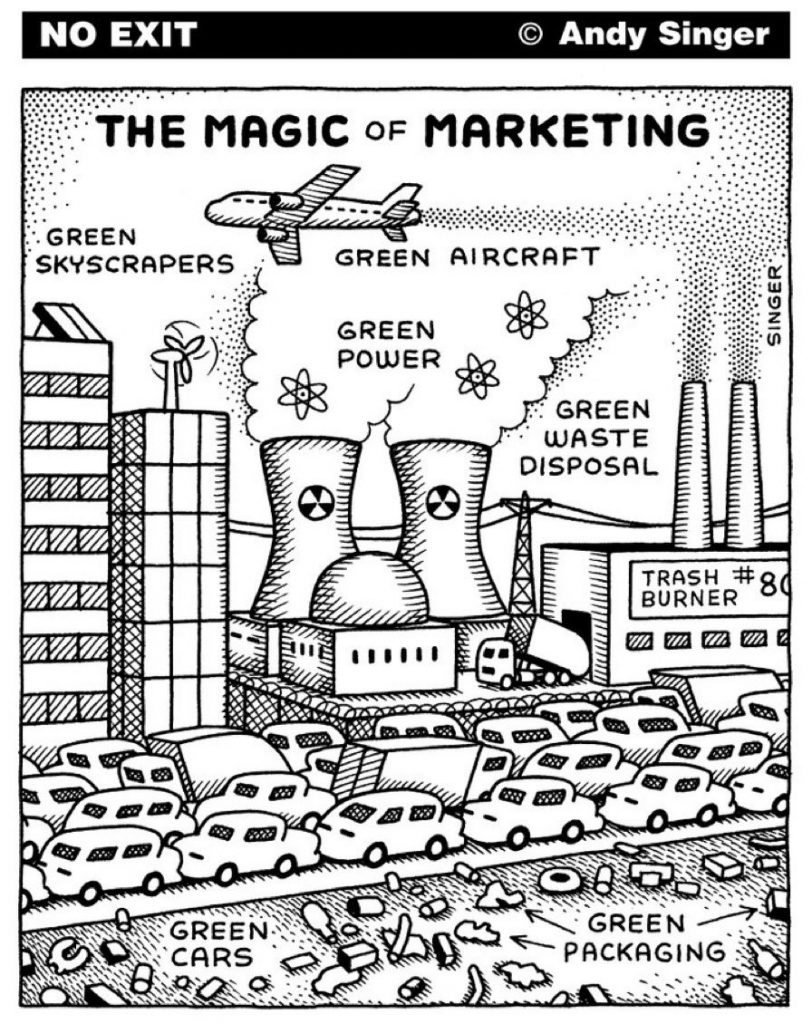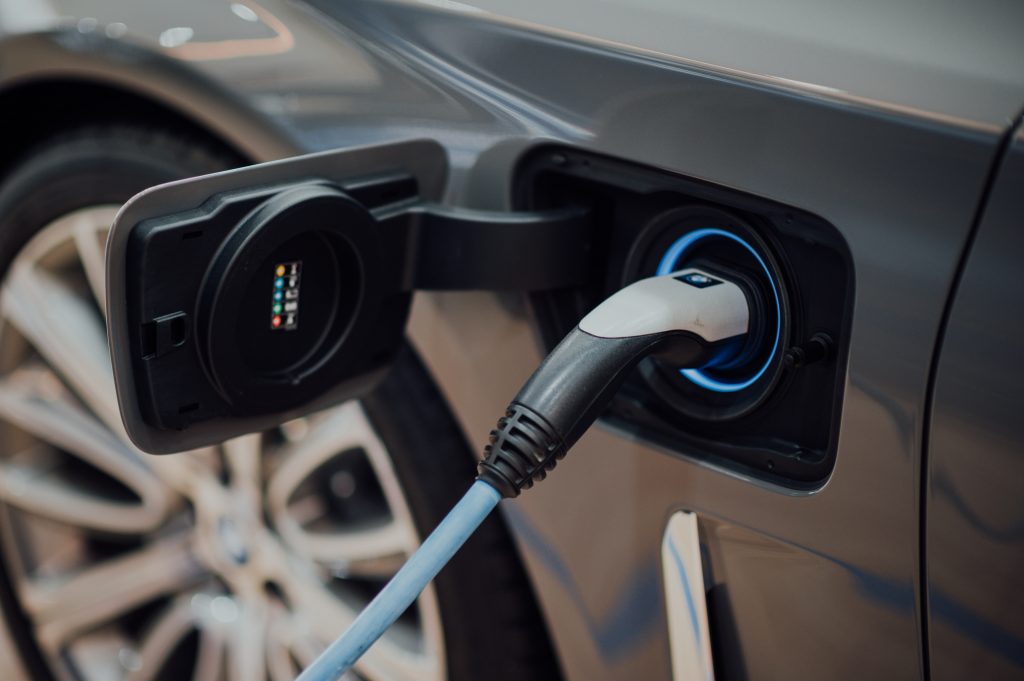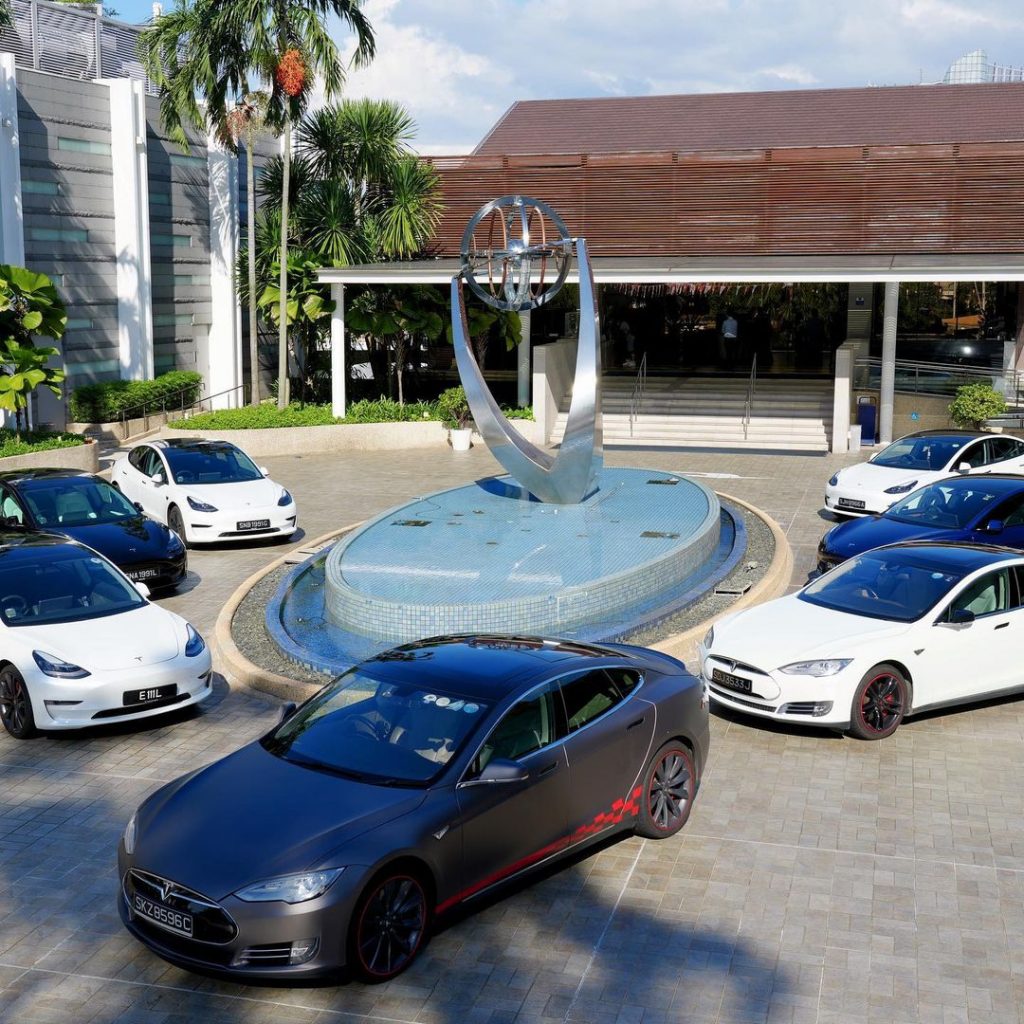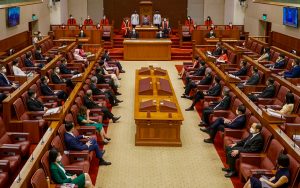Top Image: Randy Tarampi on Unsplash
In Singapore’s bid to become a more sustainable city as laid out in Singapore Green Plan 2030, one of the tenets involves phasing out Internal Combustion Engine (ICE) vehicles by 2040 and switching to Electric Vehicles (EVs).
It’s an ambitious plan, given how car-ownership works in Singapore. This also means Singapore would stop the new registration of ICE vehicles by 2030 as per the Certificate of Entitlement (COE) regulations—a mere eight years away.
The electrification of automobiles comes as a panacea to rising carbon emissions. Since EVs run on electricity, there is a dramatic reduction in toxic fumes, resulting in lesser air pollution and fewer carbon emissions.
Moreover, owning EVs comes with many benefits, from lower maintenance costs to a quieter, smoother drive. Coupled with a breathless slew of government grants for early adoption, the entrance of Teslas into Singapore’s car market, and Singapore’s push to install more than 60,000 charging stations island-wide, switching to EVs is an appealing choice.
As much of an environmental boon EVs are, on closer inspection, they are not as neat a solution to reducing carbon emissions as they purport to be.
For one, in building their sleek and shiny exterior, the methods are perhaps not as green. Plus, the mass adoption of pricey EVs (S$100,888 to S$322,960) might accentuate class divides in society, continually feeding into our never-ending quest for material possessions and equating them as status symbols.
While EVs might present a futuristic and technologically advanced mode of transport that is both efficient and environmentally friendly, it is worthwhile to thoroughly consider their more significant implications and consider a solution that champions public transport and dissuades private-car ownership instead.

EVs are not as green as we think
In the excitement and eagerness to decarbonise our society with Jetsons-like technology, there seems to be a perceived lack of knowledge of the environmental impact of EVs.
Many environmentalists have rightfully pointed out that zero emissions do not equate to a zero-carbon footprint.
Indeed, electrification has the potential to decarbonise transport. However, this is heavily dependent on the country’s energy grid, precisely where this energy source originates. Unlike other countries, where renewable energy sources are abundant, be it hydroelectric, nuclear, solar, or wind, Singapore has almost none of those.
For Singapore, 95% of our electricity relies on imported natural gas, albeit one cleanest of fossil fuels but still a type of fossil fuel all the same. With the increase in charging stations and the gradual phasing out of ICE vehicles, our carbon emissions have merely swapped positions from cars to electricity plants.
Given our reliance on imported energy resources, we are at the whim of the increasing global demand and decreasing natural supply. Furthermore, there is the rather carbon-intensive supply chain with EVs that everyone, including car manufacturers, seems to conveniently gloss over.
For instance, EVs use lithium-ion batteries, which are highly labour intensive to produce. These batteries require mining raw materials like cobalt and lithium, which bring questionable human rights issues and causes significant environmental devastation.
Additionally, older Giga factories in China where these batteries are produced emit a large amount of carbon emissions, making EVs not as green as they seem. This is not to discount the various local EV battery recycling start-ups that have mushroomed, but they too face an uphill battle since lithium-ion batteries are not produced with recycling in mind.
This is further exacerbated by the increased carbon taxes resulting in rising electricity costs. While it is true that the carbon footprint is less with EVs compared to an ICE vehicle, it is not at zero. All important factors to consider before we unnecessarily aggrandise EVs.

The great savings of EVs
Still, it’s undeniable that one of the most attractive features of EVs is how much money you’ll save on vehicular investment.
At the most basic level, the charging costs for EVs compared to fuel costs of ICE vehicles will be halved. On top of that, since EVs have much more simplified machinery than ICE vehicles, the maintenance cost is expected to reduce by 40 to 50 per cent.
Assuming that the average Singaporean travels 17,500 km and if the price of gasoline is at S$2 per litre and assuming that consumption is 6.7 litre/100 km, that would mean you are paying S$2,345 a year for petrol.
Compared to an EV at an energy tariff rate of 22.21 cents/kWh that runs at 11.7 kWh/100km, you would only be paying S$454.75 annually. These are huge savings that would surely add up in the long run.
Purchasing EVs is an effortless process; the road tax for EVs has also been lowered and made more comparable to ICE vehicles.
For example, a Hyundai Kona Electric will see its annual road tax fall from about S$1,400 to S$1,100, and that of a Tesla Model 3 will drop from S$2,300 to S$1,500.
As an added incentive, the minimum payment of S$5,000 from the additional registration fee (ARF) will also be removed starting this year. This is on top of the Early Adopter’s Incentive, which offers a 45% rebate off the additional registration fees (ARF) tax, capped at S$20,000.
The savings pile on with the Enhanced Vehicular Emissions Scheme (EVES), where there is a S$25,000 rebate for Band A EVs and a S$15,000 rebate for Band A2 EVs.
For a country where owning a car costs an arm and leg, these rebates make the switch to EVs a smooth and easy transition.

Singapore has also committed to building more than 60,000 charging stations, with 40,000 charging stations in public housing and 20,000 in private housing.
This includes the growing number of mall parking lots with many charging stations. EVs have more than doubled from 1,397 in end-2020 to 3,713 in end-2021.
Our long-standing love affair with cars
It’s no secret that material wealth and possessions are seen as status symbols in Singapore. Take a look at the infamous 5Cs that persists today; having and acquiring material wealth is still very much ingrained in our society. Despite EVs and their multitude of benefits for the environment, owning a car in Singapore is still continually tagged to one’s wealth and class.

Take a look at the surge of EVs in 2021 that increased by 17-fold from the previous year. Teslas took the lead with 924 units, with other luxury car brands leading close behind, such as MG, Porsche and BMW.
To give you an idea, a Tesla Model 3 costs upwards of S$111,245 with all the rebates and not counting COE. Even the cheapest MG ZS Electric at S$128,888 with COE is a luxury not many can afford upfront. The cream of the crop, a Porsche Taycan, will set you back a staggering S$462,058 to S$744,058.
In a 2015 article, Academic and Distinguished Fellow at the Asia Research Institute (ARI), Professor Kishore Mahbubani wrote about how Singaporeans idolise cars.
“We have to stop worshipping our cars. In theory, a car is a functional instrument, just like a refrigerator, washing machine or hairdryer. We don’t worship our hair dryers or washing machines. Yet, many Singaporeans wake up early every Sunday to polish their cars!”
“The dream of car ownership is an American dream,” he writes, “it makes sense that cars are integral to American life, where spaces are vast, and there is so much land. However, Singapore is small, and this constant pursuit of attaining a car also results in “a formula of perpetual unhappiness”.
Still, with the transition of EVs, Professor Mahbubani purports that this will change our preoccupation with cars and reduce car-worship. As a new buyer of an electric vehicle himself, Professor Mahbubani sees this move as being a good custodian of planet Earth. “If you switch from car worship to worship of planet earth, that’s a very important transition.”
Perhaps the pessimistic realist in me disagrees with Prof Mabubani’s views that Singapore’s fixation with cars will truly disappear. Yes, an EV is beneficial for the environment, but being able to afford one also serves as an indicator of class, wealth, position, and power in society.
These entrenched values are not so easily eradicated. To truly attain a sustainable and post-carbon society, we need more equitable transport options, a perceptible shift in mindset, and a keener desire to make the world less harmful for future generations.

A car-lite and car-less Singapore
To wit, the focus of our Green Transition should seek to solve the issue of carbon emissions as holistically as possible.
If the aim is a car-lite society, as mentioned in Budget 2022, then the focus on private-car ownership should be reduced, while public transport or vehicle-sharing is encouraged.
The answer to a greener sustainable Singapore is not more cars; it’s having less of them.
With the electrification of most of our public transport fleet, it makes more sense to encourage the usage of these facilities. More importantly, public transport should be seen as cool and preferred.
For instance, in cities such as Berlin, using public transport such as trains is seen as vogue instead of cars. There is also a growing trend where Gen-Zs and millennials are eschewing cars.
In Singapore, given our land constraints, there seems to be an even lesser need to own a car. With the continually improving transport system that ensures 8 out of 10 households live within 10 minutes of a train station, and 85% of our mass public transport journeys under 20km are completed within 60 minutes, our public transport is as efficient as they come.
Moreover, with HDB towns in the works, such as Tengah New Town, to feature a car-free town centre, owning a car quickly becomes an obsolete endeavour.
Still, this is not to say that EVs are entirely impractical and pointless in Singapore; they would still have their place in society. More importantly, it is worthwhile to rethink our obsession with cars and how perhaps we might ease our Green Transition a little quicker if we let go of the mindset where car ownership is needed and pertinent to the Singaporean narrative.







